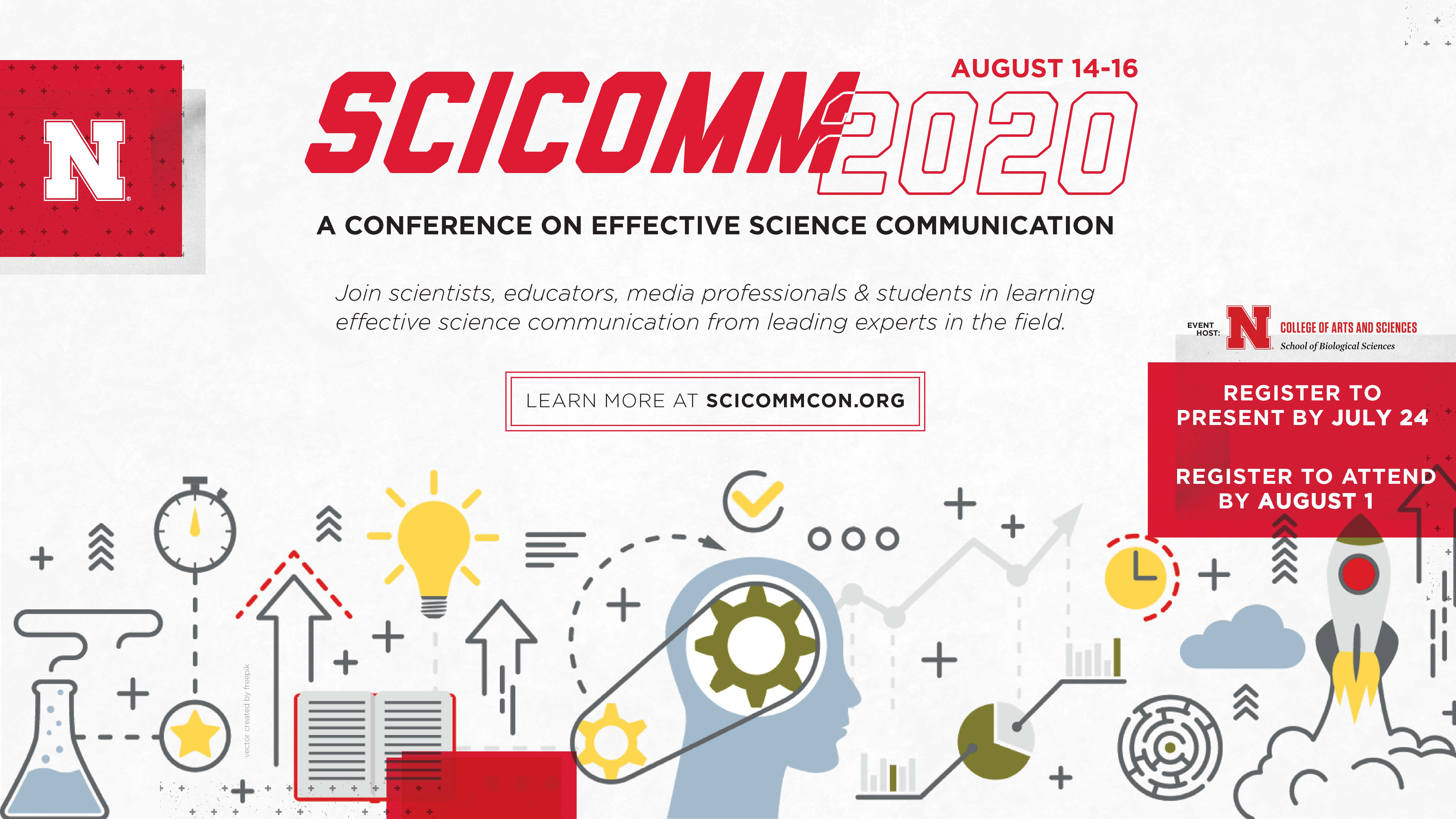
SciComm 2020 moves online as a free three-day event
LINCOLN, Nebraska — The deadline is rapidly approaching to register for SciComm 2020, a three-day conference on effective science communication hosted by the University of Nebraska-Lincoln. The event has moved online as a virtual conference with no registration fee.
The annual SciComm conference, now set for Aug. 14-16, brings together scientists, educators, professional communicators, artists and more to share strategies and insights for effective science communication, forge connections and receive critical feedback. Registration officially closes Aug. 1, but presentation titles and abstracts for live talk proposals should be submitted by July 24. To register, visit http://www.scicommcon.org.
Keynote speakers for the 2020 conference will include Andrew Revkin of the Initiative on Communication and Sustainability, and Christopher Volpe of ScienceCounts, speaking Saturday and Sunday morning, respectively. Two additional keynote speakers will be announced soon on the conference website.
Revkin is a science journalist for the New York Times and the founding director of the Initiative at Columbia University’s Earth Institute, where he builds programs, courses and collaborations that bridge the gap between climate science and society. Volpe is the executive director and a founding board member of ScienceCounts, a nonprofit organization devoted to promoting awareness of and support for science. There, he develops data-driven social marketing strategies to foster connections between the scientific community and the public.
“Now that this conference is online and being offered at no cost, our audience can grow and more easily allow scientists, media professionals and educators to build connections, share ideas, and inspire new, innovative, and effective science communication strategies,” said Eileen Hebets, committee chair and professor of biological sciences at Nebraska. “This conference is a great opportunity for advanced students and scientists just entering their careers to build a strong foundation in communication, which can help propel their success for years to come, regardless of their career paths.”
SciComm begins with a keynote for all registered participants at 6 p.m. CDT on Aug. 14, followed by the awards ceremony for the Lightning Talk competition and Film Festival.
In addition to the keynote speeches, the weekend will feature concurrent talks and sessions by nationally known experts focused on informal STEM learning; science communication research; K-12 STEM; disciplinary-based education research; science and the media; broader impacts; and communicating controversial science. These sessions will take place from 10 a.m. to 1 p.m. CDT on Saturday and Sunday. Other events include a virtual reception Saturday night featuring SciComm Bingo and live performances marrying the arts and sciences.
The complete schedule of events will be updated here as details are finalized. Follow the SciComm Twitter and Instagram accounts for more updates.
SciComm began at Nebraska in 2015 as a one-day symposium and was repeated in 2016. It was expanded into a full conference in 2018 and has attracted faculty, teachers and education-focused professionals from across the country.
Sponsors of this year’s conference include the Center for Science, Mathematics, and Computer Education, which will be running the conference on Zoom; Nebraska's Established Program to Stimulate Competitive Research; the colleges of Arts and Sciences, Agriculture and Natural Resources, Education and Human Sciences, and Engineering; the Agricultural Research Division; Agricultural Leadership, Education and Communication; Nebraska Biotechnology Center; the departments of Entomology, Agronomy and Horticulture, Communication Studies, and Natural Resources; the Office of Research and Economic Development; the schools of Biological Sciences and Natural Resources; Nebraska 4-H; the Johnny Carson Center for Emerging Media Arts; and the University of Nebraska State Museum; all at Nebraska, with additional support from a National Institute of General Medical Sciences Science Education Partnership Award.